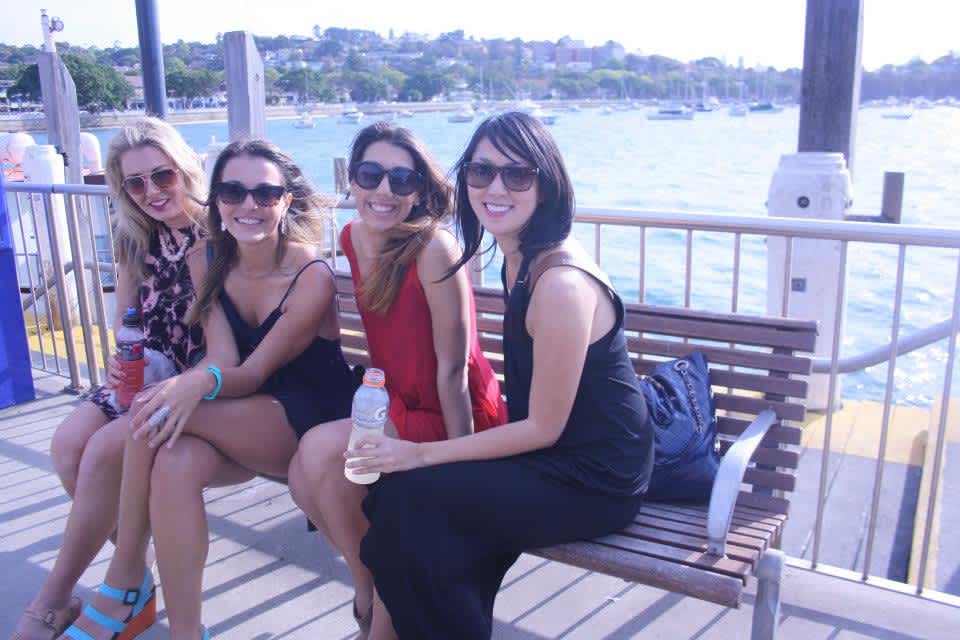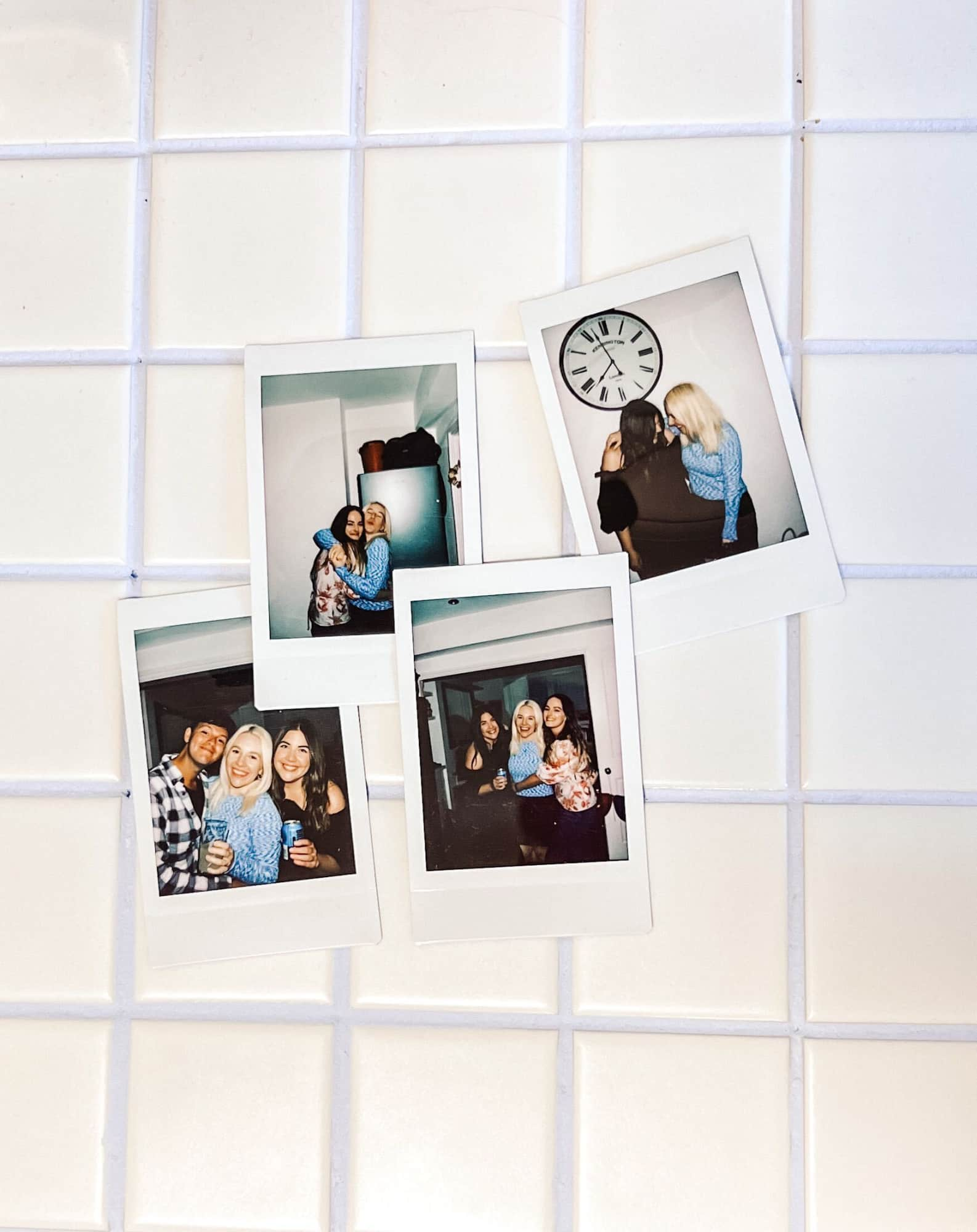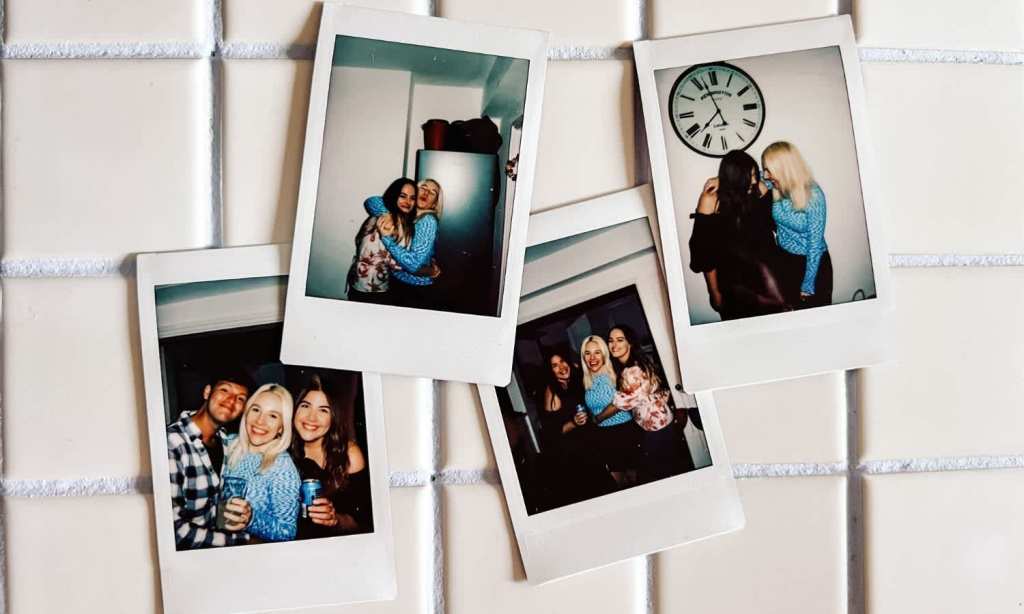Welcome to I’m Not From Here — a monthly column by five people who have lived the expat experience and want to share their advice and anecdotes with anyone thinking of doing the same. We know all too well that packing up and starting over elsewhere is one of the most exhilarating, yet stressful, things you can do. So, each month, we’ll aim to make your move that little bit easier while reminiscing about our own crazy adventures abroad. Enjoy and bon voyage!
When I first came out to Sydney (I’m an American), I was 19 years old, doing an exchange at Sydney Uni. During the six months, I made loads of friends – other exchange students, people in my classes and people I worked with at a bar. It was a no-brainer for me to come back after I graduated from uni in the US and wasn’t sure what to do next.
But it was only when I came back that I realised all the people I’d made friends with who lived in Australia permanently were more acquaintances and party friends than people I could rely on or have deeper conversations with. I was back to square one. But I loved the city so much, I stuck it out.
I felt that all I needed was one good friend who could then help me to make more. I really struggled. And it took me years to finally find a friendship group. Interestingly, most of them I met through work, which I wouldn’t have expected. Being away from my family, though, they became family.

While I was surprised how long it took me to find that group, Talia Litman, a New York-based Marriage and Family Therapist, says it’s normal and that when moving abroad, expect an adjustment period.
“It can be an exciting time, filled with new experiences and people, and also a time of loss — of familiarity, family, friends and how your life was before,” she says. “The logistical and emotional demands of moving abroad can be overwhelming, and can limit your capacity for making new friends – initially, at least. Additionally, it can be harder to feel confident exploring and adventuring when your home base feels shaky and ungrounded.”
Ahead, Litman shares some advice for how to make new friends and what to do if you’re feeling lonely, with myself and my colleagues who have also been expats, weighing in.
Start By Thinking About What Friendships You Want to Have
“Moving abroad is a wonderful opportunity to make intentional choices for yourself, including the kinds of friendships you want to have,” says Litman.
“I suggest reflecting on your prior and current friendships, and jotting down what you liked/didn’t like, and what you want/don’t want. Having a prioritised list of what you are looking for in friendships will help you focus your energy and efforts, and increase the likelihood of you getting what you want.”
Ways to Make New Friends
Get Fixed Up
Ask everyone you know if they can fix you up on a friend date in your new location — there’s a lot of comfort in meeting people that aren’t total strangers, advises Litman.
“I’ve met some of my closest friends on blind ‘friend dates’,” says Lyndsey Rodrigues, who spent 12 years living in New York. “While I, personally, didn’t have anyone I could ask to set me up when I first moved to New York, after living there for a few years, people would reach out to me to ask if I could show their mates around. I always said yes, because I would have loved to have had those same opportunities when I first relocated. I’m so glad I did, too, because while there were some people I had a coffee with, once, there were so many more who are still to this day some of the most important people in my life and it all started with that shared experience of being an expat — even if a few years apart.”
“Hitting up your social circle before you move is always a good idea,” says Jack Revell, who moved to Sydney from the UK three years ago.
“Many of the friends and acquaintances I made when I first arrived were through people I knew back home. Those people may come and go but it’s good to have a few key jump-off points who may be able to introduce you to others. You’ll likely go through a few recommendations until you find someone you click with but persistency and trusting your gut about who you like and who you want to spend time with is key.
“One of my closest friends in Sydney came through my manager at a bar I was working at in London who put me in touch with her cousin. I wasn’t expecting much but went along with the invitation anyway and three years later I was a groomsman at his wedding. Strange things can happen when you say yes”.
Make Work Friends
Ask colleagues to go for a coffee or drink — you have an automatic ‘in’, and work is a good starter topic for conversation.
“Most of my closest friends were made through work, but in my experience, the key to really making friends through your job is to (as they say in Zoom calls) take it offline,” says Angela Law, an Australian who lived in the UK for two years.

“Transitioning from work friends to real friends can be hit or miss, but when it works, it can lead to really powerful friendships. One of my now close friends actually used to be my boss and when her birthday fell right after she herself relocated to London from New York, I asked if she wanted to grab a drink after work instead of going home to an empty apartment. She agreed and we spent hours in a little pub tucked away behind Carnaby Street, getting to know one another and bonding over the expat experience and our different upbringings. That night became the foundation for a really solid working relationship and eventual friendship, and we still talk every week.”
Adds says Natasha Bazika, who lived in New York for several years, “I was lucky to be in an industry where meeting people was easy. I had media events every night, and even though I didn’t have an office to go to every day or a team to collaborate with in person, other freelance writers quickly became regulars—some even became best friends.”
She continues, “The freelance community in New York was tight, so chances are you would run into the same people at least three times a week. The first friend I ever made was a fellow freelance writer, Alissa. I met her at one event, and the next night, I decided to have a more extended conversation with her. We both shared similar interests, and her horror dating stories were fascinating. The following week, we met at a dinner for United Airlines. We both decided, then and there, at the bar, we should just become friends. Now six years later, she’s still a good friend, and if it weren’t for the pandemic, we would be travelling the world together, for work, of course.”
Use Technology
Meet-up apps are a great way to meet people who share a common interest and who also want to meet new people – the perfect population for friend-making.
“When it came to finding a new crowd, I took to Bumble friends,” says Bazika. “This is where I met two women, Ashley and Kristen, of similar age, who both had moved from other US states. Unfortunately, the friendship didn’t last the test of time, but using apps such as Bumble and Meetup helped me find like-minded people to engage with, which is especially important when you move to a new city.

“I’ve made some pretty great and interesting friends over the years through these methods, and I highly recommend anyone, especially creatives, to do the same when they relocate overseas.”
Say Yes
If you get invited to anything, even if it’s not the type of event that usually interests you, go along for the opportunity to meet potential friends, because you never know.
“When I first moved to NYC, I was hanging out with a group of girls who were not my type of women at all,” Rodrigues says. “They were always embroiled in some sort of drama and most of them seem fairly intent on just meeting a rich guy, quitting their jobs and moving to The Hamptons. However, they were very kind and invited me everywhere so I said yes, instead of sitting at home alone.
“I now think of them as my starter friends because it was through them that I ended up at a Fourth of July party where I met a wonderful girl named Amy who became an instant friend. From there, Amy and I started hanging out and together we met Laura (I picked her up at a bar!) who, in turn, introduced us to KJ who then introduced us to a bunch of amazing humans. Over time, I was able to drift away from the ‘starter friends’ and spend my time with people who were more my cup of tea — and they are my tribe to this day!”
For Law when she moved to London, she was fortunate enough to already have a few friends there — an “ex-work wife” and a couple others who were friends through friends.
“I’m an introvert by nature and have a tendency to say no to new social experiences out of pure nervousness, but when I moved overseas, I made it my mission to say yes,” Law says. “On my first weekend, I ended up at Brighton Pride with a group of 20 strangers (and two not-strangers), which lead to overseas trips to Christmas markets as a smaller group over the two years I lived there. Joining new circles of friends who have known one another all their lives can be daunting, but if you’re invited, I dare you to just say yes.”
Strike Up Conversations
Litman also encourages expats to try talking to people out and about – in line for coffee; after a workout class; at the hairdressers. “When I moved to New York from London, I met one of my closest friends in an Uber Pool,” she says. “It helps to mention that you’re new in town, as people like to share their local wisdom, and they may invite you to something.” Of course, she also acknowledges that chatting with total strangers isn’t for everyone and says that if this feels too far out of your comfort zone, stick with other approaches.
Says Rodrigues, “Don’t be afraid to make the first move! In 2012, I was watching the Olympics Opening Ceremony at an outdoor bar in Chelsea and noticed the girl sitting next to me had an English accent. I struck up a conversation with her (although she swears she approached me first!) and we have been best mates ever since.”
Revell says that though it’s pretty rare to meet people IRL these days, two of the closest people he has in his life came through chance encounters.
“One was after my group of friends got chatting to another group while a few beers deep playing two-up on ANZAC Day,” he says. “We all hit it off super well and I now live with one of them and consider her a very close friend. I also met my current partner at a bar in similar circumstances so real-life conversations with random strangers are definitely a good thing. I think the key though is consistency. If you’ve got someone’s Facebook details the next morning after a night out, follow through on those drunk plans you made together. You never know where it could lead!”
What to Do If You Feel Lonely
Loneliness is natural when you are in the process of creating a new home and life for yourself.
“When you move abroad, your in-person social network usually gets smaller, so I suggest scheduling regular calls with friends and family to tap into your support base from afar,” says Litman. “In particular, you may want to speak with people you know who have moved abroad themselves, to hear and learn about their experiences.”
Litman also suggests that moving abroad is also a great time to deepen your connection to yourself through more time alone, journaling, and other mindfulness practices. “You may also want to consider seeking professional help from a therapist or counselor to support you through the transition,” she offers.
“During the months’ long job hunt after moving to London, I felt lonely often,” says Law. “But when the city got me down, I’d go for a walk to remind me of where I am and how proud of myself I should be. My favourite spot was walking past Buckingham Palace — not necessarily because I’m a royalist (although my mug cabinet would say different) — but because it was such an obvious symbol of how far from home I’d taken myself. On the days I felt up to it, I’d snap a photo for the family WhatsApp chat or video call my mum to show her where I was and that always perked me right up.”
Revell acknowledges that getting out and about while you feel like you’re lacking in social connections can be really tough, but he says one way to handle being on your own is to view it as an opportunity to work on yourself and to indulge in the passions you might not have otherwise been able to pursue with a stacked calendar.
“Join a writers group or community sports team, see gigs no one else wants to see by yourself, learn a really niche hobby,” he says. “You’ll find similarly lost souls and you may just make friends for life. Crucially though, don’t go into it with this idea in mind. Just do what you love for yourself because you love it. People appreciate passion and honesty and you’re much more likely to expand your social circle just being yourself.”







